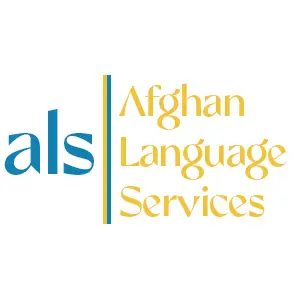7 Critical Challenges Afghan Legal Asylum Seekers Face without Adequate Language Assistance
Language is not just communication in a courtroom, it is the very foundation of justice. For Afghan asylum seekers who speak Dari, Pashto, or other Afghan languages, the courtroom can quickly become a place of fear and silence when their voices are not fully understood. Subtle misinterpretations can reshape a testimony, mistranslations can erase legal nuance, and communication gaps can ultimately decide the fate of an asylum claim.
At Afghan Language Services (ALS), we have witnessed firsthand how professional interpretation safeguards rights and ensures procedural fairness. Below, we examine the seven greatest risks Afghan asylum seekers face without expert Dari and Pashto legal interpretation.
Risk 1: Misinterpretation During Judicial Proceedings
Even a single mistranslated phrase can create a legal disaster. An Afghan asylum seeker describing persecution may mean “threatened,” but if the interpreter renders it as “warned,” the meaning shifts drastically. This distortion can result in testimony that appears contradictory or unreliable, undermining the entire case. Professional interpreters ensure that meaning, tone, and intent remain intact, because in legal proceedings, precision is everything.
Risk 2: Erroneous Translation of Legal Documentation
Court documents are the backbone of asylum applications. A mistranslated affidavit, incorrectly rendered date, or misused legal term can invalidate an entire filing. For example, confusing “torture” with “harassment” in a witness statement may lead to dismissal or weaken grounds for protection. ALS guarantees accuracy through certified translations, preserving nuance and credibility in every document.
Risk 3: Communication Gaps with Legal Counsel
Without precise interpretation, asylum seekers cannot fully explain their circumstances to attorneys, nor can they fully grasp the legal strategies designed to protect them. This results in missed opportunities to present stronger arguments or provide crucial supporting details. At ALS, we bridge this gap by enabling authentic, transparent communication that empowers both client and counsel.
Risk 4: Procedural Delays and Administrative Setbacks
Inaccurate interpretation often forces courts to schedule repeat hearings to clarify testimony. These delays prolong uncertainty for asylum seekers who are already living in fear and limbo. Missed statutory deadlines can also jeopardize entire cases. ALS interpreters help ensure hearings proceed efficiently, reducing costly delays and accelerating fair resolution.
Risk 5: Forfeiture of Legal Rights and Protections
Afghan asylum seekers are entitled to specific protections, but without clear interpretation, they may unknowingly waive rights or miss chances to appeal. Imagine signing a binding document without understanding its full consequences, this is the stark reality many face. Professional legal interpretation ensures clients know their rights and exercise them with confidence.
Risk 6: Diminished Credibility of Testimony
Judges and immigration officers are trained to notice inconsistencies. Even small interpretation errors can make a testimony appear unreliable, weakening the credibility of the asylum seeker. Once trust is eroded, it is difficult to rebuild. ALS interpreters deliver consistent, accurate testimony, protecting clients from being unfairly perceived as dishonest.
Risk 7: Incomplete Presentation of Supporting Evidence
Language barriers can cause crucial evidence, from medical records to letters of support, to be misunderstood or stripped of context. Without skilled interpretation, important details are lost, reducing the weight of corroborating material. ALS ensures evidence is fully contextualized, allowing decision-makers to see the complete picture of each case.
Conclusion: Language Access is Justice
For Afghan asylum seekers, the stakes could not be higher. A mistranslation can mean the difference between safety and deportation, between protection and danger. Accurate, professional language support is not optional, it is essential to justice.
At Afghan Language Services (ALS), we provide certified Dari and Pashto legal interpretation trusted by courts, attorneys, and international organizations. Every word we deliver is precise, culturally fluent, and ethically grounded — because justice depends on it.


